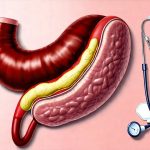Cardiovascular disease (CVD) remains a leading cause of mortality worldwide, prompting ongoing research into preventative and therapeutic strategies beyond traditional approaches. Emerging evidence suggests that the gut microbiome – the vast community of microorganisms residing in our digestive tract – plays a surprisingly significant role in cardiovascular health. This complex ecosystem isn’t merely involved in digestion; it interacts with the body in numerous ways, influencing inflammation, lipid metabolism, blood pressure regulation, and even the function of endothelial cells lining blood vessels.
Probiotics, defined as live microorganisms that confer a health benefit on the host when administered in adequate amounts, are receiving increasing attention for their potential to modulate this gut microbiome and positively impact cardiovascular parameters. While research is still evolving, studies demonstrate promising links between specific probiotic strains and improved heart health indicators, leading to growing interest among both researchers and individuals seeking proactive wellness strategies.
Understanding the Gut-Heart Connection
The connection between the gut and the heart isn’t as distant as it appears. The “gut-heart axis” describes the bidirectional communication pathway linking these two vital organs. Microbial metabolites produced in the gut can enter the bloodstream, directly influencing cardiovascular function. For example, certain bacteria convert dietary components into compounds like trimethylamine N-oxide (TMAO), which has been linked to an increased risk of atherosclerosis – the buildup of plaque in arteries. Conversely, inflammation within the gut microbiome can trigger systemic inflammation, a key driver in the development and progression of CVD.
The Role of Probiotics
Probiotics aim to restore or maintain a healthy balance within the gut microbiome. By introducing beneficial bacteria, probiotics can potentially influence several factors relevant to cardiovascular health. This includes reducing the production of harmful metabolites like TMAO, modulating inflammatory responses, improving lipid profiles (cholesterol and triglycerides), and even affecting blood pressure regulation through interactions with the nervous system. Different strains exhibit varying capabilities; therefore, selecting appropriate probiotic formulations is crucial for achieving specific desired outcomes.
Probiotics and Cholesterol Management
Several studies indicate that certain probiotic strains may contribute to improved cholesterol levels. Some Lactobacillus and Bifidobacterium species have demonstrated an ability to bind cholesterol in the gut, reducing its absorption into the bloodstream. This can lead to lower total cholesterol and LDL (“bad”) cholesterol levels. Furthermore, probiotics might influence bile acid metabolism, prompting the body to utilize more cholesterol for bile acid production, thereby further lowering circulating cholesterol levels. It’s important to note that these effects are often strain-specific and vary depending on individual factors.
Probiotics and Blood Pressure Regulation
Hypertension (high blood pressure) is a major risk factor for CVD. Emerging research suggests probiotics may play a role in blood pressure management, although the mechanisms aren’t fully understood. Some studies suggest specific strains can increase the production of angiotensin-converting enzyme (ACE) inhibitory peptides within the gut. ACE inhibitors are commonly prescribed medications used to lower blood pressure. Additionally, probiotic intervention might enhance nitric oxide production, leading to vasodilation—the widening of blood vessels—and a subsequent reduction in blood pressure.
Probiotics and Inflammation
Chronic inflammation is a hallmark of CVD. The gut microbiome profoundly influences the body’s inflammatory response. An imbalance in gut bacteria (dysbiosis) can lead to increased intestinal permeability, often referred to as “leaky gut,” allowing bacterial components to enter the bloodstream and trigger systemic inflammation. Probiotics can help strengthen the gut barrier function, reduce intestinal permeability, and modulate immune responses, ultimately mitigating chronic inflammation associated with cardiovascular disease risk. Specific strains have demonstrated an ability to suppress pro-inflammatory cytokines while promoting anti-inflammatory pathways within the body.
While promising, it’s crucial to approach probiotic supplementation with a degree of caution and informed understanding. The field is constantly evolving, and more robust clinical trials are needed to fully elucidate the specific mechanisms and optimal applications of probiotics for cardiovascular health. Individual responses can vary significantly based on factors such as baseline gut microbiome composition, diet, lifestyle, and genetic predisposition. Probiotics should not be considered a replacement for conventional medical treatments or healthy lifestyle choices like a balanced diet, regular exercise, and stress management. Consultation with a healthcare professional is recommended before starting any new supplement regimen, including probiotics, to ensure safety and appropriateness for individual health needs. Further research will undoubtedly reveal more about the intricate relationship between the gut microbiome, probiotics, and the prevention and management of cardiovascular disease.


















